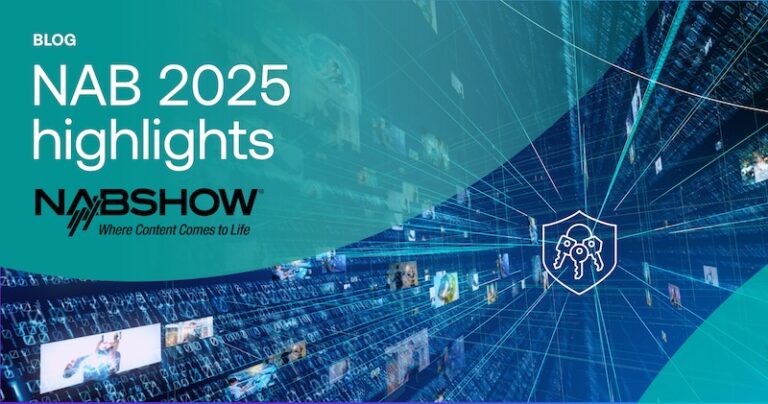Creating award-winning content costs big money, with prices ranging from $6-$8 million for an episode of Westworld or Stranger Things, all the way up to $15 million an episode for Game of Thrones. Unfortunately, a combination of factors, including the proliferation of free or ad-driven content and relaxed moral standards towards digital content, has considerably lowered the threshold for potential customers engaging in piracy instead.
More than 9/10 of millennials say they don’t feel any guilt watching streams illegally. Visits to illegal sports streaming sites top 350 million each month.
So, that brings us to what can be done to protect content and give owners the return they deserve on their investment. The recommended solution for anti-piracy is employing a digital rights management solution (DRM), a flexible and effective technology that encrypts content and provides access only to those who are authorized to view it.
Choosing Between Digital Rights Management Vendors
To provide for the considerable needs of copyright holders and enforcing content licensing agreements, a number of DRM vendors have sprung up. Like any key partnership choice, a major decision facing content providers and OTT streaming operators is which digital rights management vendors can deliver the best DRM solution for their specific needs.
If you’re wondering what kind of factors you should be taking into consideration in that decision-making process, here are some tips for choosing between DRM vendors.
1. How long has the digital rights management vendor been in business
Facebook, Google and Twitter are all younger than your average college student and start-ups are some of the most striking features of the tech revolution, but when it comes to security and the protection of what’s most important for your business, there’s something reassuring about the stability of a digital rights management vendor that’s been around since the beginning.
Back in the 1990s, Intertrust was one of the first firms to get involved in copy protection and creating digital rights management products and in 2005 we established the open-standard Marlin DRM along with Panasonic, Philips, Samsung and Sony. It’s that security that Intertrust isn’t a “here today, gone tomorrow” type of company that gives our clients the confidence to build a business model protected by our DRM system.
2. Capability of supporting all content formats
Compatibility issues across various formats and codecs can cause nightmares for digital content providers. For any effective DRM system, there has to be interoperability and easy functionality between content formats across iOS, Mac OS, Android and Windows, allowing for seamless dynamic content conversion. If a digital rights management vendors solution can’t provide that kind of accessibility to different kinds of content consumers will rapidly be turned off the platform itself, creating a major business risk for the pay-TV operator.
A prospective digital rights management vendors needs to be able to assure access and interoperability across all platforms and with all kinds of OTT devices.
3. Having a proven track record of large deployments
When looking at digital rights management vendors, like any major vendor, one of the first things to investigate is how they’ve coped with similar clients. Not only will this give an insight into how they go about their business but also how they deal with various enterprise sizes. Scalability is much talked about but hard to implement and finding a digital rights management vendor with proven abilities to scale up rapidly and meet live event user bursts is crucial.
Intertrust’s experience with major clients such as Italy’s Tivu, Britain’s Youview and France’s TF1 has proved our digital rights management platform’s ability to handle subscriber bases into the millions and beyond.
4. Providing full multi-DRM support
Along with the Marlin DRM system, of which Intertrust was a founding partner, there are four other major DRMs created by the dominant tech players: Google’s Widevine, Microsoft’s PlayReady, Apple’s FairPlay Streaming and Adobe’s PrimeTime. For any DRM vendor to be able to provide a fully holistic DRM solution to their client, they must be able to offer support for all of the major systems; otherwise, the client will be facing major compatibility and operational issues in the future.
One of the greatest successes of our digital rights management platform has been its open-standards non-proprietary nature, which means that major device and content producers are more open to adopting it as a ‘neutral’ DRM system.
5. Flexibility of application
The advantages of a cloud-based digital rights management solution versus running it on-premises should be fairly apparent by now for most organizations. The CAPEX and OPEX expense of maintaining hardware, along with all the associated maintenance headaches and upkeep costs are non-issues. Having to send support engineers out in a hurry to fix a hardware issue isn’t a good use of their time. Your staff has a million and one things going on without having to worry about someone else’s. That’s why it’s essential that whichever of the DRM vendors you choose can provide a flexible, cost effective service that can become a seamless overlay between your shopfront and your content.
It’s for this reason that Intertrust has made a concerted effort to deliver exactly what our clients need, by becoming the first cloud-based multi-DRM platform to support all major DRMs.
6. Compliance with MovieLabs Enhanced Content Protection specification
When choosing a digital rights management vendors, another important deciding factor is what the major film industry players think. The big Hollywood studios demand enhanced security to guarantee the protection of premium UHD/4K content. The compliance with these specifications, advanced copy protection and ability to encrypt content along with our forensic video watermarking are among the reasons why all major Hollywood studios have accepted our DRM system for their digital content. Moreover, operators using our DRM are in a favorable position to negotiate content licensing agreements with these studios, since all content rights will be preserved and protected.
7. Simplifying your processes
Digital content providers come in all shapes and sizes, but one of the biggest impacts on their bottom line, no matter their size, is developer hours. By delivering the licenses required by all devices, Intertrust’s ExpressPlay DRM makes it much simpler for developers by removing the need to create custom logic to cater for different devices and operating systems (and their various versions).
Finding the right digital rights management vendor is key
No matter what size your platform is or hopes to be, finding the right DRM vendor is the key to protecting your content from piracy and exploiting your assets to their full potential.
Intertrust’s suite of DRM solutions tick all the boxes for the perfect DRM system, which is why we’ve been at the leading edge of digital rights management product creation globally for so long. Visit us here to learn more about how our digital rights management platform can help you protect and monetize your content.







